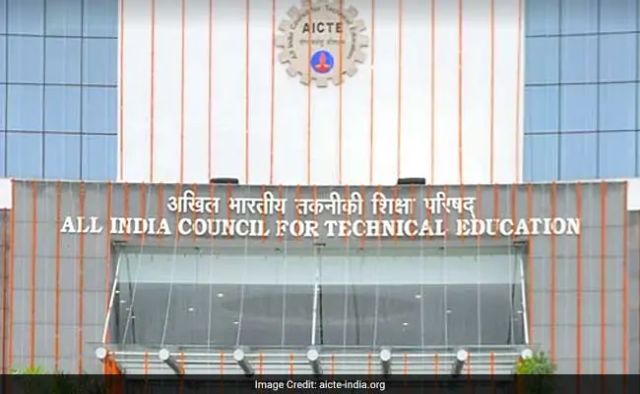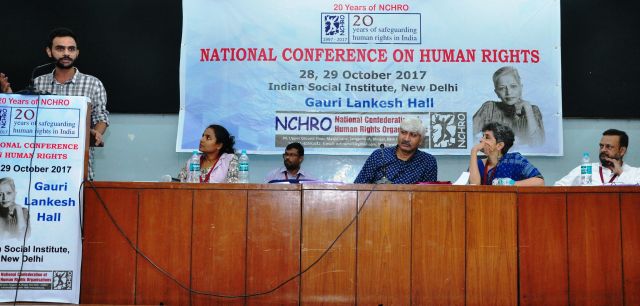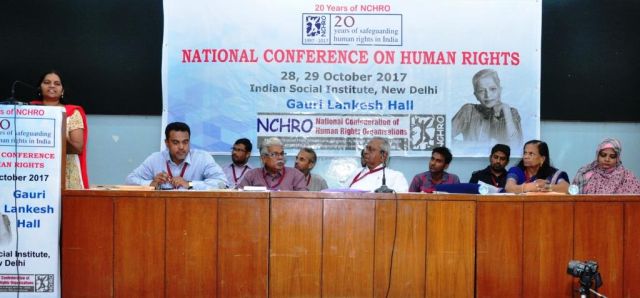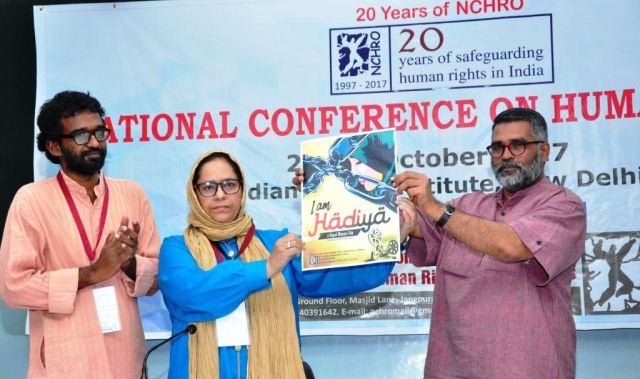
by admin | May 25, 2021 | Entrepreneurship, News, Startup Basics
 Chandigarh : The AICTE has initiated a policy under which universities and colleges along with their normal courses will start entrepreneurship courses, a senior functionary said on Friday.
Chandigarh : The AICTE has initiated a policy under which universities and colleges along with their normal courses will start entrepreneurship courses, a senior functionary said on Friday.
Professor Anil D. Sahasrabudhe, Chairman, All India Council for Technical Education, New Delhi (AICTE) said that there was a need to create a support system for students, including more internship programme or skill programme to hone the skills of students.
“We need to bring students into ‘start-up culture’ and provide a platform where they can convert their bright ideas into innovation,” Sahasrabudhe told media on the occasion of the 51st annual day of the National Institute of Technical Teachers Training and Research (NITTTR).
“We should focus on start-ups. The AICTE, has made its own start-up policy through which universities and colleges along with their normal courses will start entrepreneurship courses,” he said.
The role of the AICTE, he said, was not just of a regulator but also as a facilitator committed to improving the quality of technical education.
He said laboratories and research centres should be opened for 24 hours for students so that they can do research and draw new ideas.
“Indian students have a lot of potential, we need to identify and channelize their ideas in a right direction,” he said.
Professor K.K. Talwar, Chairman of the board of governors of NITTTR, advised the faculty and staff of the institute to rededicate themselves to achieving the objectives and meeting the challenges posed by the dynamic and fast changing socio-economic environment in the country.
He emphasised institutional involvement in improving the healthcare system of the country.
—IANS

by admin | May 25, 2021 | Corporate Jobs, Economy, Employment, Entrepreneurship, Government Jobs, News, Politics, Private Jobs, Startup Basics
 Gandhinagar : Universities should give top priority to preparing students for employability, President Ram Nath Kovind said on Sunday, lauding Gujarat University for helping many new entrepreneurs through its programmes.
Gandhinagar : Universities should give top priority to preparing students for employability, President Ram Nath Kovind said on Sunday, lauding Gujarat University for helping many new entrepreneurs through its programmes.
Addressing the varsity’s 66th convocation, he said: “Gujarat University is supporting many new entrepreneurs through its Start-up and Entrepreneurship Council.
“The creation of the Council of Skill Development is also a welcome step towards empowering students. Today’s universities should give top priority to preparing their students for employability, and for self-employment and entrepreneurship.”
The President said that there are many good institutions in Ahmedabad that promote a start-up culture.
Also noting that recently, the Prime Ministers of India and Israel inaugurated the International Centre for Entrepreneurship and Technology – or iCreate – in Ahmedabad, he said that this will provide world-class facilities to young Indian entrepreneurs and urged students of Gujarat University to take advantage of them.
—IANS

by admin | May 25, 2021 | News, Politics

Student leader Umar Khalid addressing the NCHRO National Conference in New Delhi while seen seated on the dais are (from left to right) Padmashree, Adv. A. Mohammed Yusuff, Prof. Apoorvanand, Prof. Nivedita Menon and Syed Zubair Ahmed.
By Pervez Bari,
New Delhi : Prof. Nivedita Menon of Jawaharlal Nehru University, (JNU), has said that the RSS is trying to change the social and cultural ambience of the universities. The new Vice Chancellors appointed by the NDA government try to introduce the culture of “Rashtravaad” through fair or fouls means with the help of the ministers concerned.
Prof. Nivedita made the above observation while delivering her keynote address in the opening session on the second day of the two-day (October 28 & 29, 2017) National Conference on Human Rights organized by National Confederation of Human Rights Organizations, (NCHRO). The sessions were held in the Gauri Lankesh Hall, at Indian Social Institute, New Delhi. Prof. Apoorvanand of Delhi University, (DU). chaired the first session on “Universities and Academic Freedom”. Ms Padmashree, Joint Secretary of NCHRO, Karnataka Chapter, welcomed the gathering.
Umar Khalid, the eminent student leader from JNU Delhi, underlined the need for new student politics different from the traditional left.

Veteran journalist V.T. Rajshekar addressing the NCHRO’s National Conference in New Delhi.
While Syed Zubair Ahmed, Editor-in-chief of web news portal www.muslimmirror.com, putting forth his views on the topic said: “A university is the place where fascism gets tough resistance, that’s why universities are the main target of fascist forces. When there was no opposition to the RSS controlled BJP government, the main opposition party Congress was nowhere in the scenario and was on ‘watch and wait’ mode. It was JNU, its students and faculty members who were playing the active role of opposition and countering the fascist regime tooth and nail”.
The chairperson of the NCHRO Prof. A. Marx presided over the second session “Victims of Rights Violations and Activist Meet’’. It was inaugurated by eminent journalist, Editor of Dalit Voice V.T. Rajshekar. “We are meeting here today in a very dangerous of political climate. Brahmanism is the enemy of the country. Muslims are not foreigners. Dalit-Muslim unity is need of the hour. Muslim leadership should initiate this task” he said. Adv. Shakeel Ahmed, National Executive Member, NCHRO also spoke.

Mrs. Vasantha Saibaba, wife of Delhi University’s jailed Prof. G. N. Saibaba, addressing the NCHRO’s National Conference in New Delhi.
The victims of rights violations, Mrs. Vasantha Saibaba, the wife of Dr G.N. Saibaba, who is currently in Nagpur Central Jail; Amanullah Ansari, Kota, Rajasthan; Zakir Thyagi, Muzaffarnagar, UP; Dr. Kusum Megwal, Udaipur Rajasthan; Irshad Ali, Delhi; Mohammed Elyas, Baran, Rajasthan, Sadaf Mushrraf. (Sister of missing JNU student Najeeb), Delhi shared their pain with the participants.
The activists’ session under the banner “Rights in the Modern World and the Problems of Appropriation” focused on the need for better legal and political coordination among different rights bodies.
The documentary on Dr. Hadiya issue (Kerala) titled “I am Hadiya” produced by noted film maker Gopal Menon was symbolically released on the second day of the conference.
Adv. K. P. Mohammed Shareef, Vice Chairperson of NCHRO, chaired the valedictory session. Adv. Amit Srivastav, State Vice-President, NCHRO, Delhi Chapter; delivered welcome address.
Muhammed Ali Jinnah, General Secretary, Popular Front of India, speaking on the occasion said that we live in a phase, wherein undeclared emergency is in place and notable writers and thinkers like Dabolkar, Pansare, Kalburgi and Gauri Lankesh were shot to death. Muslims and Dalits are being lynched for eating the food of their choice. At this juncture there is a need to fight for Human Rights and justice. As a human being, who has to be true to his conscience and safeguard the justice, it’s the right time for every Indian to take a right decision. In that way, we have to congratulate NCHRO, which works tirelessly in the human rights front, he said.
Jinnah said the Indian Constitution is a beacon, comparatively. But it is used to arrest the people instead of safeguarding them. Muslims, Dalits and Tribals are affected the most. The condition of Muslims is pathetic. The community which is denied reservation in all the fields is provided reservation in the jails, well above the mark. The Muslims who constitute 14.2% of the population constitute more than 30% in the prisons. The Muslims who spend 8 years, 10 years and 14 years in the jails are later acquitted as innocent by the courts. Why were they sentenced? Who will return their youth and dignity? Who will answer the questions of these hundreds of youth in this democratic nation? What will be our role in this case?, he questioned.
The right wing fascists who are in power are now targeting the anti-fascists, those who have difference of opinion and those who fight for Human Rights. What will be our role against this fascist witch-hunt?
The Government has got a draconian weapon called UAPA to murder the Human Rights. The manner in which UAPA has been implemented shows its dangers. Moreover the Government is using this act to portray the Muslim majority areas as the dens of terrorism. What can we do for this?

Reny Ayline, Secretary NCHRO; looks on as Ms Anjum Zamrud Habib, Writer & Activist, Kashmir; and Vilayodi Shivankutty, Kerala Chapter President, NCHRO release the poster of documentary titled “I am Hadiya” produced by noted film maker Gopal Menon in New Delhi.
Hence, the call for human rights should be echoed across the nation and it’s the need of the hour. The true spirit of our Constitution can be restored only if we fight effectively for the Human Rights. Let the NCHRO, which has 20 years experience in the human rights field guide the nation in the journey for human rights, Jinnah appealed.
Prof. A. Marx, Chairperson of NCHRO, Prof. P. Koya, General Secretary, NCHRO; also spoke in the valedictory session.
Meanwhile, fifteen resolutions on different issues were passed in the conference. Ansar Indori, State General Secretary, NCHRO, Delhi chapter; proposed the vote of thanks.
The activists from 18 states viz. Kerala, Tamil Nadu, Pondicherry, Karnataka, Andhra Pradesh, Telangana, Maharashtra, Goa, Madhya Pradesh, Rajasthan, Haryana, Delhi, Jammu & Kashmir, Uttar Pradesh, Bihar, Odisha, West Bengal and Assam participated in the conference.

 Chandigarh : The AICTE has initiated a policy under which universities and colleges along with their normal courses will start entrepreneurship courses, a senior functionary said on Friday.
Chandigarh : The AICTE has initiated a policy under which universities and colleges along with their normal courses will start entrepreneurship courses, a senior functionary said on Friday.




